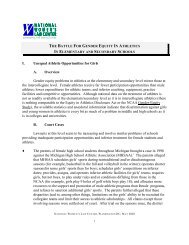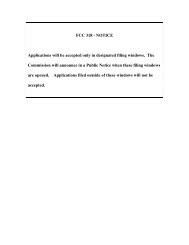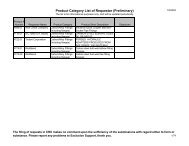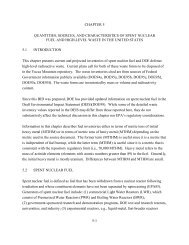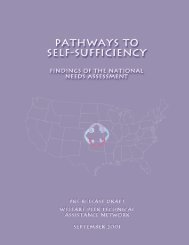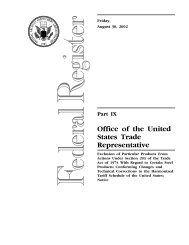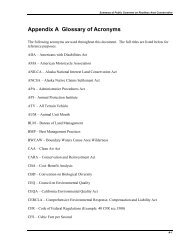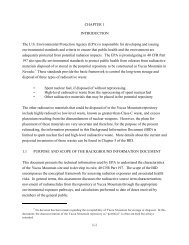E-Commerce Commission Press Kit
E-Commerce Commission Press Kit
E-Commerce Commission Press Kit
Create successful ePaper yourself
Turn your PDF publications into a flip-book with our unique Google optimized e-Paper software.
that the new converged market place of broadcast, telephony and the Internet operatebased on laws of competition and consumer choice rather than those of governmentregulation.• There should be no discriminatory taxation against Internet commerce.• The Internet should function as a seamless global marketplace with no artificial barrierserected by governments.As with any major societal transformation, the digital economy will foster change and someupheaval. The Industrial Revolution brought great economic and social benefit, but it alsobrought about massive dislocations of people, increased industrial pollution, unhealthy child laborand unsafe work environments. Societies were often slow in responding to these negative sideeffects.Similarly, the digital economy may bring potential invasions of privacy, easier access by childrento pornographic and violent materials and hate speech, more sophisticated and far-reachingcriminal activity and a host of other as-yet unknown problems.The private sector and government, working together, must address these problems in ways thatmake the Internet a safe environment while not impeding its commercial development.The U.S. Government’s “Global Framework for Electronic <strong>Commerce</strong>,” posted on the Internet athttp://www.ecommerce.gov, describes a market-driven framework that will stimulate the growthof the digital economy while offering flexible, industry-driven solutions that will effectivelyaddress problems that may arise. Steps are now being taken in the United States and around theworld to meet these public policy goals.Perhaps the greatest challenge the U.S. faces, however, is to put in place the human resourcepolicies necessary for the digital economy. If the trends described in this study continue, millionsof jobs will likely be created, while millions of others will be lost.The good news is that the net economic growth anticipated by this digital revolution will likelycreate more jobs than those that are lost. Further, the jobs created are likely to be higher-skilledand higher-paying than those that will be displaced. However, it is clear that we will face greatchallenges in preparing the current workforce and future workers to fill the new jobs that will becreated. If we do not have a sufficient number of well-educated and trained people to fill thesejobs, then the good news can turn to bad.If these public policy issues can be resolved, and electronic commerce is allowed to flourish, thedigital economy could accelerate world economic growth well into the next century.51




